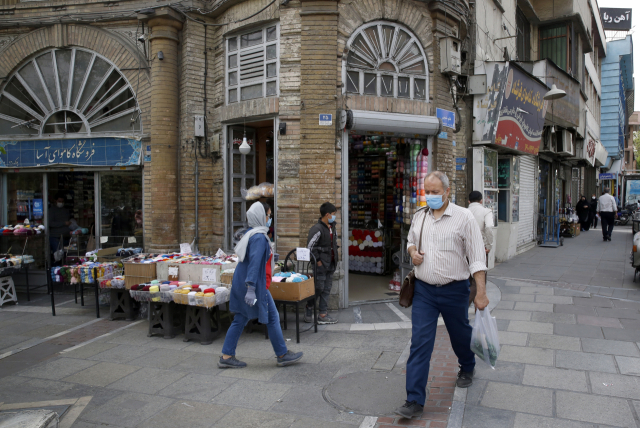 viewer
viewer
At the talks to restore the Iranian nuclear agreement (JCPOA, Comprehensive Joint Action Plan), the Iranian delegation repeatedly emphasized the existing position that it would stop nuclear activities only after the lifting of economic sanctions.
According to Bloomberg News on the 6th (local time), Vice Minister of Foreign Affairs Abbas Arakch said at a meeting of the participating countries of the JCPOA Joint Committee held in Vienna this afternoon. As soon as it confirms, we are ready to stop the nuclear program that deviates from the protocol and return to full implementation of the JCPOA.” He told reporters shortly after the talks that “the dialogue with the participating countries was constructive,” and that “we rejected the absurd US proposal.”
The United States reportedly proposed to the Iranian delegation to lift its frozen assets worth $1 billion (about 1.1 trillion won) in exchange for Iran to stop enriching uranium at a concentration of 20%. The news agency reported that Iran’s funds frozen in South Korea amounted to $7 billion (7.8 trillion won). Iran opened accounts in Korean won with IBK Industrial Bank and Woori Bank under the name of the Iranian Central Bank in 2010, and received payments for crude oil exports through these accounts. However, the U.S. government put Iran’s central bank on sanctions list in 2018, and transactions through the account were suspended, and the Iranian government has demanded that the frozen funds be lifted.
Iran’s Atomic Energy Commissioner Ali Akbar Salehi said on the 3rd that it had produced 50 kg of enriched uranium at a 20% concentration. Normally, to make one nuclear weapon, 25 kg of 90% highly enriched uranium is required, and 200 to 250 kg of 20% enriched uranium must be produced. The Iranian nuclear agreement allows enrichment of uranium to concentrations of 3.67%.
Iran had emphasized that it would only talk with the parties within the framework of the nuclear agreement signed in 2015 and not talks directly or indirectly with the United States. It is reported that European countries among the JCPOA Parties did not expect much from the meeting. A European official who requested anonymity said that European countries such as Germany, France and the United Kingdom did not expect major progress on this day, in part because of Iran’s insistence that US sanctions should be lifted at once. However, another official from Europe noted that in February, Iran and the International Atomic Energy Agency (IAEA) agreed to extend their nuclear inspections to a limited level for three months, pointing out that it is important that the conference make progress before the end of May. did.
Iran signed an Iranian nuclear agreement with the United States and six other countries in 2015, which included lifting economic sanctions in exchange for suspending its nuclear weapons program. However, the former US administration of Donald Trump unilaterally withdrew from the nuclear agreement in May 2018 and revived sanctions against Iran. As a result, Iran has not adhered to the provisions of the freeze/reduction of nuclear programs promised in the nuclear agreement phased out from May 2019. Although Joe Biden’s administration is in the position of returning to the nuclear agreement, Iran is demanding that the sanctions be lifted, while Iran says it can lift the sanctions only if it first abides by the agreement.
/ Reporter Kim Yeon-ha [email protected]
< 저작권자 ⓒ 서울경제, 무단 전재 및 재배포 금지 >
